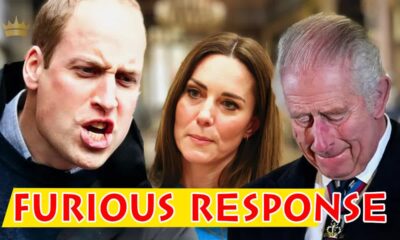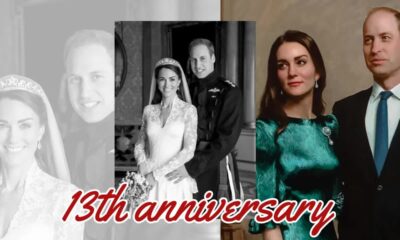The News
Harry’s Hypocritical Words Spark Backlash: Prince Urges Job Quitting for Mental Health
Privileged Prince Harry faced a wave of criticism and accusations of hypocrisy after suggesting people should leave their jobs to prioritize their mental well-being during an interview about his involvement with the startup company Better Up.
The 37-year-old Duke of Sussex made headlines when he departed from his royal duties two years ago, citing a lack of support and understanding, along with financial constraints, as reasons for his decision to relocate to California with his wife Meghan Markle.
In a recent discussion about his role as chief impact officer at the California-based mental health startup Better Up, Harry emphasized the importance of addressing mental health issues and leading conversations on the subject.
However, social media users swiftly condemned the prince for his remarks, pointing out the stark contrast between his advice and his opulent lifestyle in a $14 million Montecito mansion shared with Markle, alongside their lucrative deals with Spotify and Netflix.
Critics on Twitter highlighted the disconnect between Harry's privileged position and the realities faced by everyday working-class individuals, such as hospital porters, hotel workers, and others who rely on their jobs to make ends meet.
Many expressed disbelief at the prince's suggestion that quitting one's job could lead to joy and self-awareness, particularly when financial stability is a pressing concern for the majority of individuals.
Responding to Harry's remarks, some Twitter users underscored the challenges faced by those living paycheck to paycheck, emphasizing that for many, the primary goal of employment is to provide for their families and meet essential financial obligations.
The notion of leaving a job for mental health reasons was deemed impractical and unrealistic for individuals without substantial savings or alternative sources of income.
Royal expert Paul Baldwin weighed in on the controversy, asserting that Harry's comments reflected a significant detachment from the realities of ordinary British citizens.
Baldwin criticized the prince for overlooking the practical necessity of work in sustaining livelihoods and meeting basic needs, suggesting that Harry's perspective had become skewed by his affluent lifestyle and celebrity status.
While acknowledging Harry's privileged upbringing, Baldwin lamented the prince's apparent disconnect from the common experiences of the general populace, questioning whether Harry's evolution into an advocate for radical career changes was influenced by external factors, alluding to his wife Meghan's potential role in shaping his current viewpoints.
Drawing parallels between Harry and his late mother, Princess Diana, Baldwin contrasted the prince's recent statements with his past reputation for authenticity and genuine interactions with people.
He suggested that Harry's departure from his authentic persona towards a more commercialized and detached public image marked a departure from his earlier identity as a relatable and down-to-earth member of the royal family.
In conclusion, Harry's advocacy for abandoning jobs in pursuit of mental well-being has ignited a debate on privilege, responsibility, and the intersection of personal choices with societal expectations.
As the prince navigates his post-royal life in the public eye, his words and actions continue to provoke scrutiny and reflection on the evolving nature of his public persona and the impact of his statements on diverse audiences.






















































































